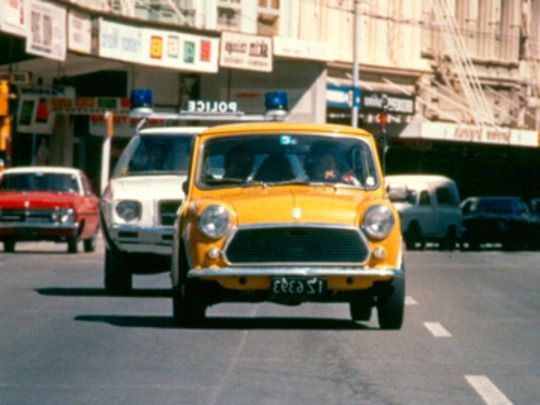
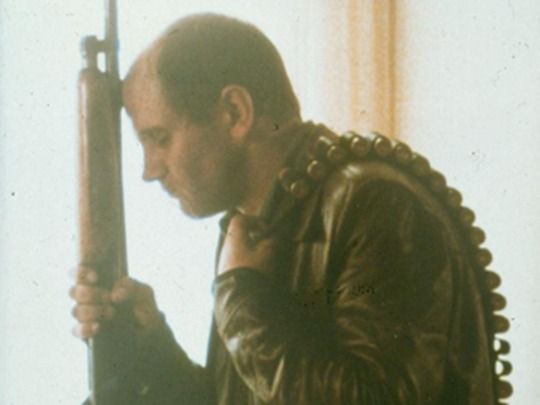
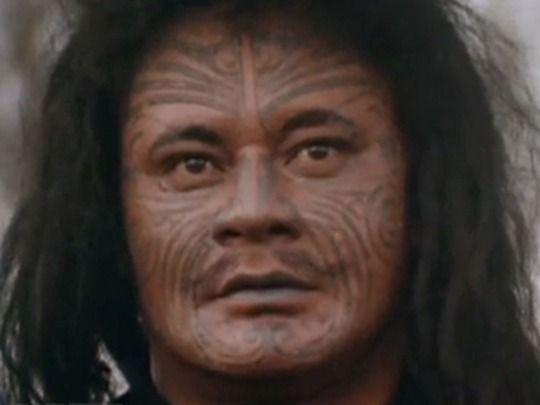
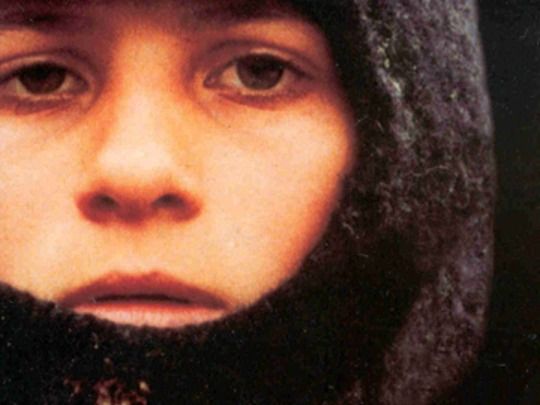
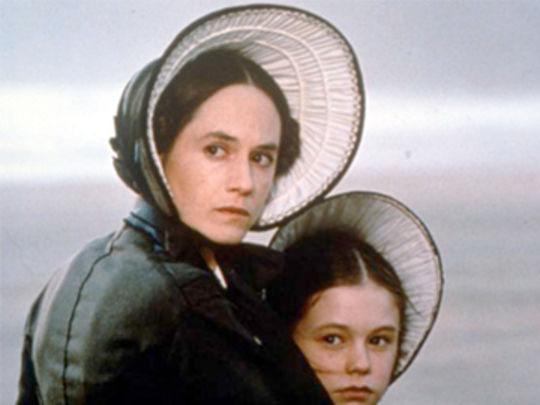
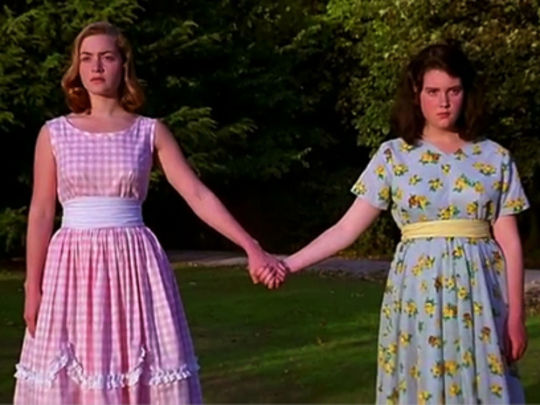
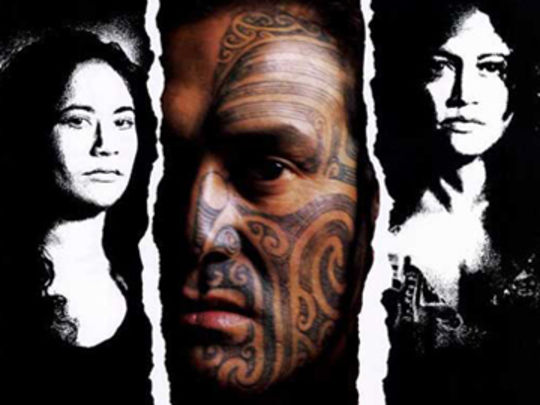
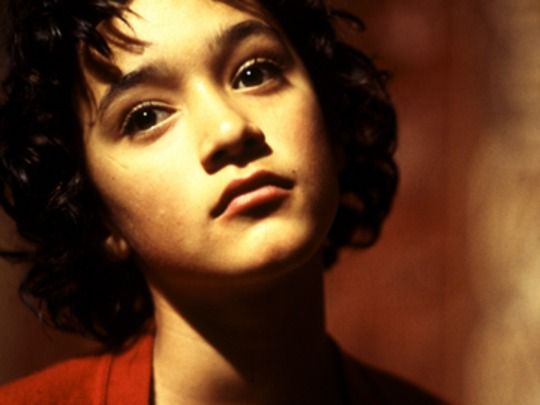
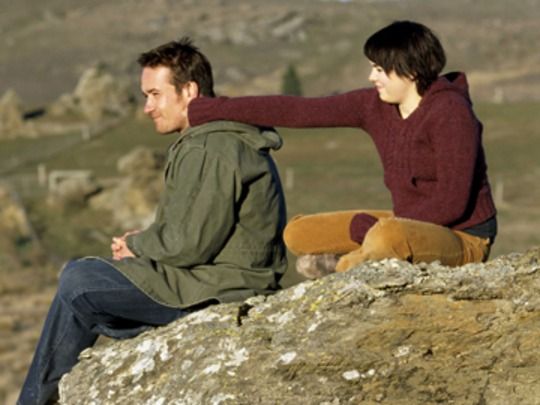
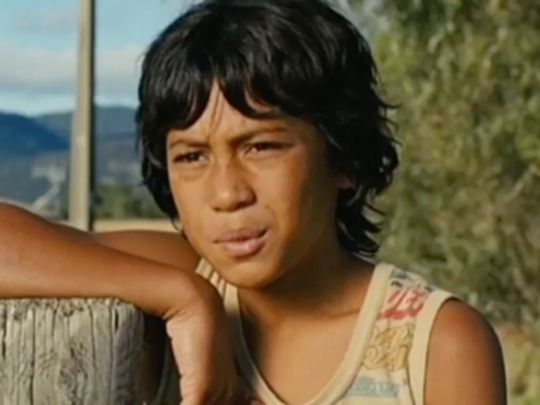


Top 10 NZ Feature Films
Top 10 NZ Feature Films
This collection has two backgrounds:
Behind the Scenes

"We are a weird people ..."

Behind the Scenes
By Irene Gardiner 25 Nov 2013
NZ On Screen celebrates New Zealand films and filmmakers 365 days a year. But for this collection, we've decided to go out on a limb and present NZ On Screen's Top 10 NZ Feature Films of all time.
We've done Top 10s before, but they've always been someone else's picks. After five years in existence I think we can confidently stick our necks out and say "these are the best 10 New Zealand feature films according to NZ On Screen."
How did we choose the 10 films? We've based our decisions on a mix of our own gut feelings and opinions (we have a great team of film buffs working at NZ On Screen, including Paul Stanley Ward, Gemma Gracewood, Ian Pryor, and Kim Baker), alongside the feedback we get from site visitors commenting on titles. And obviously we have considered the impact of the films themselves — awards, box office, reviews, international success, and the extent to which they have passed into the Kiwi consciousness.
The films we have chosen are not ranked in any particular order, they're just our best 10. We've listed them from the earliest film in the collection (Goodbye Pork Pie), to the most recently made (Boy). There are four from NZ film's break-through years of the early 1980s (Pork Pie, Smash Palace, Utu, Vigil), three from the 1990s, all of which highlight NZ films starting to have wider international success (The Piano, Once Were Warriors, Heavenly Creatures), two from the 2000s (Whale Rider, In My Father's Den, and one from 2010 (Boy).
Looking at our 10 chosen films as a whole, it's tempting to recall Sam Neill's controversial description of New Zealand's big-screen offerings as "The Cinema of Unease" (in Neill and Judy Rymer's 1995 documentary of that name). Arguments about whether this is a fair summary of our films, or an overly narrow one, have raged for years and will likely continue.
Certainly there is no lack of menacing landscapes or tortured individuals amidst the bloodlust of Utu; the fractured relationships of Smash Palace, The Piano and Once Were Warriors; and the moody psychological mind games of Vigil. Even the brilliant humour in Goodbye Pork Pie and Boy masks tales of family troubles and economic hardship, but the distinctly Kiwi comedy of these films makes you feel glad all over (and in Boy, in particular, makes you wonder if the rest of the world sometimes felt it needed a translator).
Boy also shows the evolution of a kind of "bro laughs" genre that provides a counterpoint to the "unease" theory. Alongside other screen stories mining a Polynesian and Māori sense of humour: Sione's Wedding, No. 2, Fresh Meat (plus bro'Town on the small screen) there's a little less brooding in Kiwi cinema these days, as Neill has himself happily conceded, than when the term was coined nearly 20 years ago.
Perhaps the three most controversial choices in our Top 10 will be Utu, Heavenly Creatures and In My Father's Den. Utu was considered something of a flawed masterpiece on its release, in New Zealand at least (a number of the overseas reviews were positively rapturous). But the film's reputation has grown with time, and with the recent release of Utu Redux.
Although Heavenly Creatures is neither one of Peter Jackson's mega-blockbuster titles, nor one of his early-career splatter favourites, for NZ On Screen it's the best film to mark the extraordinary talent of our most commercially successful director. Heavily influenced by his co-writer and partner Fran Walsh, Heavenly Creatures' marriage of dazzling special effects with an emotionally impactful story saw it became the first Jackson film to capture a wider audience beyond genre fans.
Brad McGann's adaptation of Maurice Gee's In My Father's Den is arguably the film in our Top 10 that attracted the least fanfare, but it is none-the-less special as a quietly powerful, personal "little" film that is well-regarded by many.
So that's our Top 10. The hardest thing about getting this collection together was not selecting 10 great films to include, but deciding what to leave out. The team discussions were intense, and there were many cries of "shall we make it a Top 20 instead?" or "couldn't there be a bonus 11th film?" But I thought we should be ruthless and keep with the Top 10 concept.
We did compile an "honourable mentions" list of 10 films that missed out, however, all of which were strongly championed by at least one team member.
These are Don't Let it Get You, Death Warmed Up, Footrot Flats, The World's Fastest Indian, Came a Hot Friday, Rain, The Quiet Earth, Sleeping Dogs, Ngati, and Illustrious Energy, all great films in their own way, but perhaps without quite the wider appeal of those we have included.
For a small country, New Zealand has gained disproportionately impressive international recognition for its films, and many of our directors, actors and crew members have gone on to overseas success. With the exception of the late McGann, whose premature death from cancer sadly robbed him of the chance, all of the directors whose films feature in our Top 10 have worked internationally: Geoff Murphy (the only director to have two films in our selection), Roger Donaldson, Vincent Ward, Jane Campion, Lee Tamahori, Niki Caro, and Taika Waititi. And, of course, the freakishly talented Peter Jackson, who has pretty much built his own film industry around him in Wellington, and is a major player on the world stage.
Our screen industry isn't huge, but it has produced some terrific movies, often on shoestring budgets. We've had good waves and not so good waves in the industry as tax breaks, support structures and economic conditions have moved and changed. As we experience another challenging time for our local industry, our Top 10 is a good chance to remember and celebrate what's come before.
Thanks to the New Zealand Film Commission, we've been able to add strong 10 minute excerpts to the site from most of the classic NZ feature films. Previously many of the films were only represented on the site by their trailer. A couple of the films in the collection are still just featured as very short excerpts or trailers (Heavenly Creatures and The Piano), because their international rights scenarios are more complex. Hopefully we will be able to change this some time in the future.
Peruse, enjoy, and please feel free to debate our choices. If there is enough of a movement for any one title that we've missed, we'll do a revision for you! Feedback here.
- Irene Gardiner is a veteran television producer and media executive. She has served as Head of Commissioning at TVNZ and Content Director at NZ On Screen. She is the president of Kiwi screen organisation SPADA, a member of the Radio New Zealand board and media access organization Able.
"We are a weird people ..."

By Barney McDonald 25 Nov 2013
The team at NZ On Screen has stuck its neck out and compiled its pick of this country’s Top 10 feature films, providing a kind of ‘Desert Island’ DVD collection for anyone wanting to watch quality local film or compare their own favourites against the panel’s picks.
So the gloves are off and no punches should be pulled when reflecting on the choices the NZ On Screen panel has made. Think about them. Disagree. Champion the choices you agree with. Ask your friends, children, spouse, colleagues and local cinema ushers if they would choose the same films, or any of them at all. In a healthy society, culture can withstand close scrutiny. It begs for it. If we can’t look at what we produce and its achievements, can we expect to evolve and flourish creatively?
There are no surprises in this top 10. All of these films made an impact either at the box office, in the media, on film studies courses or in the wider cultural spectrum, which is perhaps where it counts the most. Taika Waititi's Boy, with a domestic box office haul of $9,237,976, is our most successful film by ticket sales (Once Were Warriors is still the bums on seats leader, with 1,054,000 tickets sold to Boy's 845,482). Released just three years ago, it has already cemented its place in the local lexicon of intrinsically “Kiwi” films that captured its subject and subjects with a canny eye for detail and authenticity. It is also a comedy, a genre we’ve struggled with over the years. Unsurprisingly, with the exception of Geoff Murphy’s 1981 hit Goodbye Pork Pie, it’s the only comedy in this top 10.
We make dark films. Actor Sam Neill’s 1995 documentary, Cinema of Unease, nailed our tendency to make brooding, barbarous films prioritising violence and dysfunction, not to mention the primordial nature of the coastline, rivers, mountains and bush. Utu (given a fresh lease on life in 2013 with a director’s redux), The Piano, Vigil, Once Were Warriors, Smash Palace, even Whale Rider and Heavenly Creatures, aren’t pretty films to watch.
There is beauty, especially in the scenery and photography, which we excel at, but life is depicted as difficult, complex and bewildering. Neill starred in Sleeping Dogs in 1977, which makes the honourable mentions list, though it could easily be argued that Cinema of Unease should have made the top 10 as a poignant, thoughtful attempt to understand ourselves through cinema. Like a scene involving the Mini in Goodbye Pork Pie, it cuts to the chase.
We are a weird people and we seem to prefer making films about how weird we are. We depict what we know.
In an attempt to placate fans of film history and horror/genre films, the panel added John O’Shea’s 1966 musical/romantic comedy Don’t Let It Get You and David Blyth’s 1984 splatter flick Death Warmed Up to the secondary list [see Irene Gardiner's 'Form Guide' discussion to the left]. Both have merit, but a Top 10 should be lean and mean. Like having 10 nominees instead of six for Best Film at the Academy Awards, honourable mentions give the panel a little space to manoeuvre and a get out of jail free card.
But why not then include Peter Jackson’s 1987 “science fiction splatter comedy horror” Bad Taste? It certainly launched a uniquely successful career. Perhaps it warrants inclusion purely on the basis of ticking so many genre boxes at once.
On a similar basis, Jackson and Costa Botes’ Forgotten Silver is a genre-defying mockumentary that resoundingly declared a hitherto unexposed sophistication in concept and execution. The film received an almost unheard of 100 per cent positive rating on aggregate review site Rotten Tomatoes and was apparently proclaimed by Guinness Book of Records as the greatest film hoax in history. A film about a fake history that made history? Ticks all my boxes.
Much dissension will arise from the exclusion of Jackson’s The Lord of the Rings and The Hobbit trilogies and possibly his 2009 adaptation of The Lovely Bones. Although Jackson’s film company WingNut was involved in all productions, they are generally viewed as Hollywood films made in Wellington. For the purposes of this Top 10, it’s sensible to preclude them.
We can and should celebrate their (mostly positive) impact on the local film industry. And for the fact that The Lord of the Rings and The Lovely Bones resulted in Cocteau Twins’ Elizabeth Frazer and Brian Eno, respectively, working with Jackson (not to mention Howard Shore, Christopher Lee, Blue Velvet’s Brad Dourif, the Tolkien estate ...). The list of accomplishments, the Oscar haul notwithstanding, is phenomenal, far outstripping a prudent exclusion from this Top 10.
The bottom line is that the panel’s choices provide food for thought. In fact it’s very thoughtful of them to stimulate such thought. With that in mind, I think they should have included Jane Campion’s An Angel At My Table (1990) in the Top 10, and placed Christine Jeffs’ Rain (2001) there too, instead of in the honourable mentions where it could be replaced by Robert Sarkies’ bleakly contentious Out of the Blue (2006) and Harry Sinclair’s inventive Topless Women Talk About Their Lives (1987). Not that I’m relenting and condoning honourable mentions. (And don't ask me which films would be elbowed out of the Top 10 as a result!)
What is news is that a dozen of the 20 highest grossing New Zealand movies were made in the last decade. We’re hungry for our own films. And the industry is adept at marketing them to the public, especially when they know they are onto a winner. Although times are tough, let us remember that looking back allows us to look forward. More great films are yet to be made. What might this Top 10 look like in another couple of decades?
- Film and pop culture writer Barney McDonald was the founder and editor of 90s/00s youth bible Pavement magazine. Since Pavement's last issue in late 2006, McDonald has contributed to various publications including 1AM, The NZ Herald and written film reviews for The Sunday Star-Times.